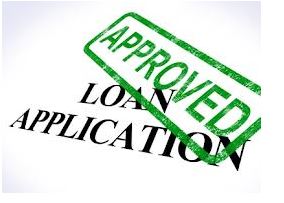LENDING LIMITS
By Joseph V. Scorese
Still considering investing in real estate? Here are some MORE things to know before you apply for a loan for that new income property.

Fannie Mae currently allows each investor to carry 10 loans at once. (Bored? You can read all about Fannie Mae's investment mortgage underwriting requirements.) If you are working with the right lender, they can help you strategize both a long-term and short-term plan to ensure that you are taking advantage of your 10-loan limit.
It's worth noting that many lending institutions will only lend up to four loans (typically the bigger banks). You'll likely have to do a little leg work to find a lender that will go up to the 10-loan limit.
INVESTOR-FRIENDLY LENDERS
When purchasing rental property, an important aspect of your long-term success is developing a strong, reliable team -- and your lender is BIG part of that equation. When I first began real estate investing, I made the mistake of using a broker who didn't understand the investing landscape. As a result, I spent a lot of time trying to explain my strategy and objective. In the end, I ended up receiving a lot of bad advice and it almost cost me several deals. I could have easily avoided this had I worked with the right lender from the get-go, mainly a direct lender.
There's nothing wrong with working with a mortgage broker when you are in the market to by a primary residence, but if you're trying to build a portfolio of rental properties, I recommend you work with a direct lender.
The main difference between a broker and a lender is that a broker shops around your financial profile to their selected list of lenders, where as a direct lender is the institution actually lending you the loan.
When you work with a broker, you give up control. The underwriter can change lending standards (often during escrow) or decide that they want to pull out of the deal at the last minute. When you work with a direct lender, you're in closer contact with the decision makers from the get go.
Before working with a lender, here are a few good questions to ask:
- Do you currently work with any active investors?
- How many loans can you offer to any one investor?
- Do you personally own any rental property?
CREDIT REQUIREMENTS
As I mentioned earlier, Fannie Mae currently allows up to 10 loans per investor. A little known fact is that there are two different credit-qualification guidelines for obtaining these loans.
- Loans 1-10: requires a credit score of at least 680
CASH RESERVES
In addition to the down payment, lenders will require you to have six months of cash reserves available per property.
This means that if you own a primary residence and you are going to acquire a rental, the lender will require you to have six months of mortgage payments (cash in the bank) for both your primary residence and your future rental.
Once you know the price point of the prospective rental you are considering, it's a good idea to have a lender provide you with an estimated monthly payment so that you can save accordingly.
DOWN PAYMENT
Just like there are two sets of guidelines for your credit, there are also multiple sets of guidelines regarding down payments, listed below:
- Loans 1-10 (multi-family): 25% down
W2 INCOME
Lenders will require a minimum of two solid years of w-2 income. They want to see that you've been at your job or working in the same industry for at least two years. The underwriter will calculate your annual income by averaging your past two years of gross income. For example, if this year you earned $100K and last year you earned $50K, your average annual income would be $75K.
If you are self-employed, you'll need to provide two years of tax returns, a year-to-date profit and loss statement, and most likely a letter from your CPA confirming the validity of your previous tax returns. The calculation for your annual income is the same as the w-2 employee.
RECAP
Contrary to popular belief, now is a great time to buy rental property. Many markets that were over-priced during the housing bubble have over-corrected and property can now be purchased far below the cost to rebuild -- which can mean substantial cash flow (even with the costs of property management).
Joseph V. Scorese
Senior Loan Officer
Firstrust Bank
1 Walnut Grove Drive
Horsham, PA 19044
Office- 267-455-0520
Cell - 215-290-5108
Fax - 215-728-8324
jscorese@firstrust.com
NMLS#391784